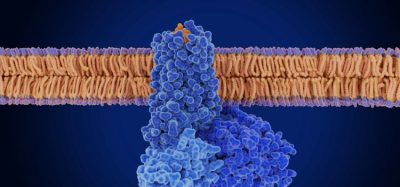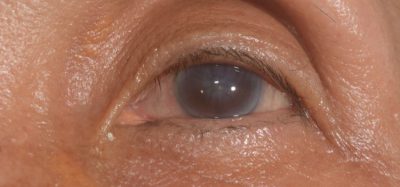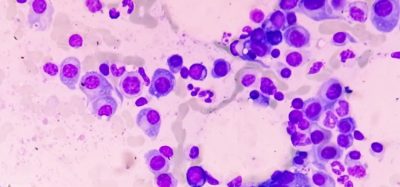Roche’s Erivedge receives conditional EU approval for treatment of advanced basal cell carcinoma
Posted: 15 July 2013 | | No comments yet
The European Commission has granted conditional approval to Erivedge…
Roche (SIX: RO, ROG; OTCQX: RHHBY) announced today that the European Commission has granted conditional approval to Erivedge (vismodegib) for the treatment of adult patients with symptomatic metastatic basal cell carcinoma (BCC) or locally advanced BCC inappropriate for surgery or radiotherapy. This approval makes Erivedge, a capsule taken once-a-day, the first licensed medicine for patients in the European Union with this disfiguring and potentially life-threatening form of skin cancer.
A conditional marketing authorisation is granted to medicinal products with a positive benefit/risk assessment that satisfy an unmet medical need and whose availability would result in a significant public health benefit. Under the provisions of the conditional approval, Roche will provide additional data on Erivedge in advanced BCC from an ongoing global safety study.
“Today’s approval is great news for patients with advanced basal cell carcinoma, who previously had no medicines to treat their disease,” said Hal Barron MD, Roche’s Chief Medical Officer and Head of Global Product Development. “Erivedge substantially reduced tumour size in patients in clinical trials, and we are pleased that Erivedge will now be available to patients in the European Union.”
Basal cell carcinoma is generally considered curable when confined to the skin. However, in some cases the disease will invade surrounding tissue (locally advanced) or spread to other parts of the body (metastatic BCC) in a manner that cannot be effectively treated with surgery or radiation.
In January 2012, Erivedge became the first licensed medicine for patients with advanced BCC in the United States when the U.S. Food and Drug Administration (FDA) approved it under the priority review programme that provides for an expedited review of drugs that offer major advances in treatment. Since October 2012, Erivedge has been approved in Switzerland, Australia, Israel, South Korea, Mexico and Ecuador. Roche is working closely with other regulatory authorities to ensure Erivedge is made available as quickly as possible.
About the ERIVANCE BCC study
This conditional approval is based on findings from the primary analysis (26 November 2010) in the pivotal ERIVANCE BCC phase II single-arm study which enrolled 104 patients with advanced BCC (71 had locally advanced and 33 had metastatic disease) from 31 study sites in the U.S., Australia and Europe.1
- The study showed Erivedge substantially shrank lesions (objective response rate, or ORR) in 43 percent (27/63) of patients with locally advanced BCC and 30 percent of patients (10/33) with metastatic BCC, as assessed by independent review. The median duration of response was 7.6 months.
- The most common adverse events included muscle spasms, hair loss, altered taste sensation, fatigue and weight loss. Serious adverse events (SAEs) were observed in 26 patients (25 percent), however of these only four (4 percent) patients had SAEs that were considered to be related to treatment with Erivedge.
About the STEVIE study
The safety profile of Erivedge is being further assessed in STEVIE, a global, single-arm, open-label multicentre study of patients with advanced forms of basal cell carcinoma. The study aims to enrol 1,200 patients. An interim analysis from STEVIE presented at ASCO 2013 confirmed a similar safety profile to that observed in the ERIVANCE BCC study.2
About basal cell carcinoma
Basal cell carcinoma (BCC) is the most common type of skin cancer in Europe, the United States and Australia.3,4,5 It is a slow-growing skin cancer typically caused by long term and/or occasionally excessive exposure to the sun6 and accounts for as many as 80 percent of all non-melanoma skin cancers.7 In advanced BCC, if the disease is left untreated or recurs in the same location after surgery or radiotherapy, it may advance further into surrounding areas such as sensory organs (ears, nose and eyes), bone, or other tissues. Depending on the location of the lesion, some cases of advanced BCC can be disfiguring, and treatment with surgery or radiotherapy can lead to the loss of sensory organs and their functions such as eyesight or hearing.
About Erivedge
Erivedge is a Hedgehog Pathway Inhibitor, a cancer medicine designed to selectively target and block abnormal activity in a cell growth pathway, known as the Hedgehog signaling pathway, which helps to regulate growth and development in the early stages of life. The Hedgehog pathway usually becomes less active as a person matures. However, mutations may reactivate the pathway, causing it to work incorrectly. These mutations are thought to occur in nearly all (at least 90 percent) cases of BCC.8
Roche is developing Erivedge under a collaboration agreement with Curis, Inc. Erivedge was discovered by Genentech and jointly validated by Genentech and Curis through a series of preclinical studies. Through this collaboration, Genentech (U.S.), Roche (ex-U.S. excluding Japan) and Chugai Pharmaceuticals (Japan) are responsible for the clinical development and commercialisation of Erivedge. Curis is eligible to receive cash payments upon the successful achievement of specified clinical development and regulatory approval milestones, as well as royalties upon commercialisation of Erivedge.
References
- Sekulic A, et al. Long-term safety and efficacy of vismodegib in patients with advanced basal cell carcinoma (aBCC): 18-month update of the pivotal ERIVANCE BCC study. Abstract #9037, ASCO 2013
- Grob JJ, et al. Vismodegib, a Hedgehog pathway inhibitor (HPI), in advanced basal cell carcinoma (aBCC): STEVIE study interim analysis in 300 patients. Abstract #9036, ASCO 2013
- Telfer NR, Colver GB, Morton CA; British Association of Dermatologists. Guidelines for the management of basal cell carcinoma. Br J Dermatol 2008;159:35-48.
- Von Hoff DD, LoRusso PM, Rudin CM, et al. Inhibition of the hedgehog pathway in advanced basal-cell carcinoma. N Engl J Med 2009;361:1164-72.
- Gilbody JS, Aitken J, Green A. What causes basal cell carcinoma to be the commonest cancer? Aust J Public Health. 1994;18:218-21.
- Walling HW, Fosko SW, Geraminejad PA, Whitaker DC, Arpey CJ. Aggressive basal cell carcinoma: presentation, pathogenesis, and management. Cancer Metastasis Rev. 2004;23:389-402.
- Sekulic A, Migden MR, Oro AE, et al. Efficacy and safety of vismodegib in advanced basal-cell carcinoma. N Engl J Med 2012;366:2171-9.
- Epstein EH. Basal cell carcinomas: attack of the hedgehog. Nat Rev Cancer 2008;8:743-754.









